|
|
|
Welcome to the October edition of Back Bar Project's Mezcal Newsletter: a destination for important information related to our Mexican spirits portfolio.
|
|
In this edition, we are thrilled to announce that the 2018 allotment of El Jolgorio's annual release mezcals has arrived. Casa Cortés began the annual release program in 2015 with limited bottlings. That number expanded to five bottlings in 2018. Bottled in black glass, these expressions represent some of the rarest and most sought after mezcals in the category.
|
|
Due to the extremely small batch sizes, the El Jolgorio annual release bottlings are allocated by market. For ordering information, please contact the Back Bar Project manager in your territory.
|
|
Find Yours
|
|
- Edition 05
- A. Karwinskii
- Pablo Vasquez Garcia
- Agua del Espino, Ejutla
- 48% abv
- 100% Agave Tobasiche Silvestre
- Bottles produced: 350
|
|
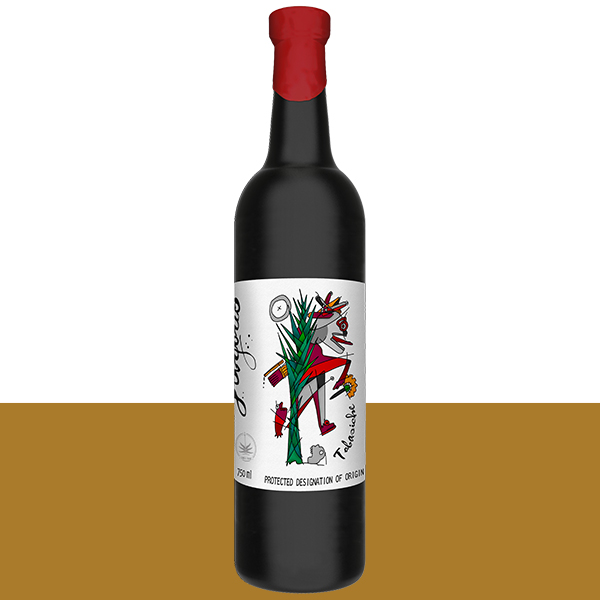
|
| Tobasiche Bottle Image |
|
|
El Jolgorio Tobasiche quickly gained high praise within the El Jolgorio family of mezcals for its wide-ranging, layered complexity of flavors. Past bottlings of this expression were produced by the legendary Pedro Vasquez in Lachigui. However, the 2018 bottling is produced by Pablo Vasquez, at his distillery in Agua del Espino, a small community in the district of Ejutla. Don Pablo is the newest mezcalero to join the Casa Cortés family of mezcaleros, and this is the first of his mezcals to be featured in an El Jolgorio bottling. He is known only to produce a new batch of Tobasiche every two to three years because he has so few agaves to work with, making this agave varietal particularly rare for him. Several of his Espadín batches were first bottled in 2018 for the Nuestra Soledad bottling from Ejutla, as Casa Cortés continues to see volume on that expression rise.
|
|
The wild agave Tobasiche is sometimes identified as "Cuixe" or "Largo" in some regional dialects. Its leaves often begin growing midway up the piña, leaving a barren, stalk-like portion at the bottom. Tobasiche can grow extremely tall, making it cumbersome to harvest.
|
|
Note: the product name on past bottlings of this expression had a slightly different spelling (Tobaziche) to respect the local dialect in Miahuatlán, where it was made. However, due to new regulations aimed at standardizing the naming of agave varieties in the mezcal industry, the product name will be spelled Tobasiche moving forward.
|
|
- (A. Americana)
- Edition 06
- Pedro Vasquez
- Lachigui, Miahuatlán
- 50.3% abv
- 100% Agave Arroqueño Semi-cultivated
- Bottles Produced: 150
|
|
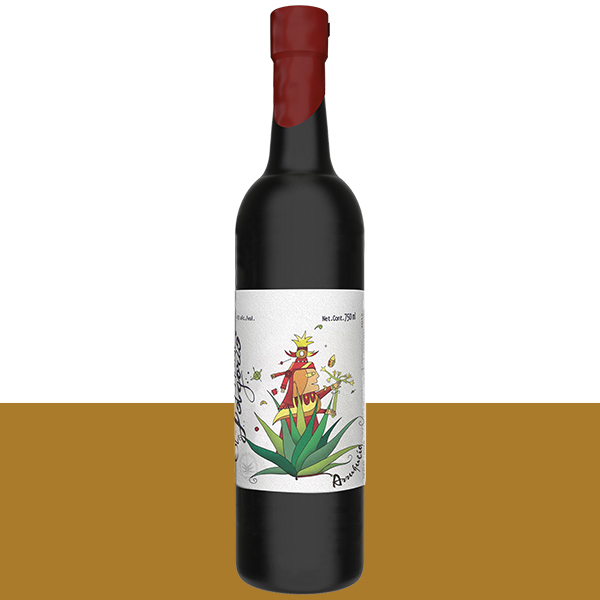
|
| Arroqueño Bottle Image |
|
| Admired as one of the most highly-prized bottles in the mezcal category, El Jolgorio Arroqueño is produced by the legendary Pedro Vasquez, along with his sons Librado and Pedro Jr., at their tiny family ranch in Lachigui, situated off the grid in the high elevation, wild mountainous terrain of the Miahuatlán district of Oaxaca.
|
| Once one of the most utilized agaves for mezcal production, the increasingly rare species has long been admired for its enormous size and long ripening period (15-20 yrs), yielding very concentrated sugars. The result is an astounding mezcal that maintains a signature tropical fruit character and perfect balance at high proofs.
|
| Note: the product name on past bottlings of this expression had a slightly different spelling (Arruqueño) to respect the local dialect in Miahuatlán. However, due to new regulations aimed at standardizing the naming of agave varieties in the mezcal industry, the product name will be spelled Arroqueño moving forward.
|
|
- (A. Convallis)
- Edition 03
- Ignacio Parada
- Santa Maria Zoquitlán
- 50.3% abv
- 100% Agave Jabalí Silvestre
- Bottles produced: 275
|
|
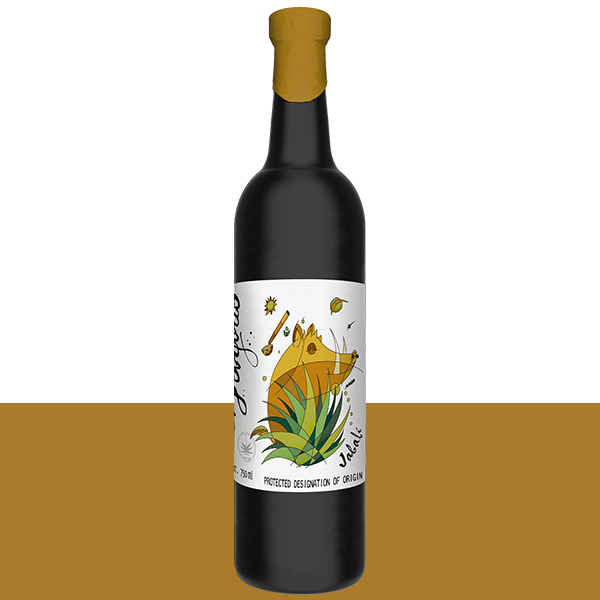
|
| Jabalí Bottle Image |
|
| Agave Jabalí is very rare and very special. It is named for its resemblance to the ridged back and sharp, curved tusks of the wild boar, or Jabalí. The plant's fibers are very strong, making it difficult to mill prior to fermentation. It's also known to cause a foam-like film in the still that requires intensive cleaning and can penetrate the still's seals. Only tiny batches of Jabalí are made in any given year, and some producers choose simply not to work with the troublesome little agave at all.
|
| Like past batches of this special release mezcal, the 2018 edition is produced by Ignacio Parada in Santa Maria Zoquitlán.
|
|
- Ignacio Parada
- Santa Maria Zoquitlán
- Edition 02
- 52.5% abv
- 100% Agave Karwinskii Silvestre
- Bottles produced: 800
|
|
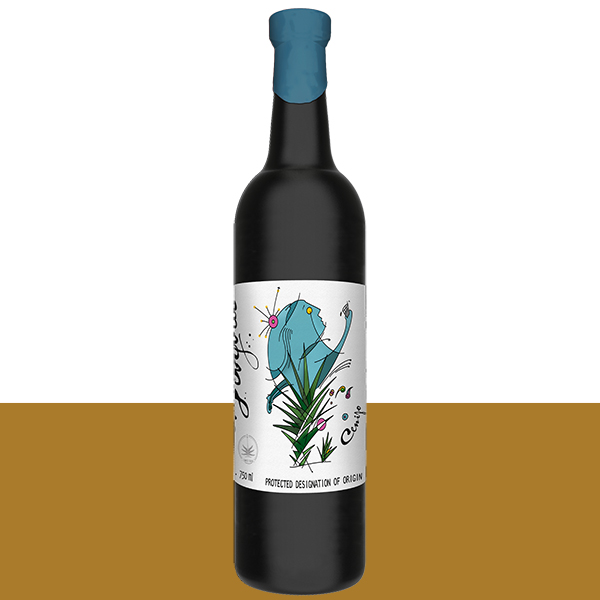
|
| Karwinskii Bottle Image |
|
| El Jolgorio Cenizo Edition 01 was one of the first annual release bottlings introduced in 2015, like the first edition, 2018's entry is produced by Ignacio Parada (aka Don Chucho) in the remote village of Santa Maria Zoquitlán. Ignacio was the first mezcalero to join the Casa Cortés collective in 2012 and produces complex, expressive mezcals from a wide variety of agave.
|
| Like other agave sub-varities within the Karwinskii family (e.g., Madrecuixe, Cuixe, & Barríl) Cenizo has a dense, cylindrical piña that yields a complex, bold, and often spicy flavor profile, laced with subtle minerality.
|
| The name Cenizo literally translates to "ash" and refers to the greenish-grey hue of the agave itself. There has been some confusion regarding the name "Cenizo," as it is used loosely in different parts of Mexico to identify different types of agave. For example, in Durango, "Cenizo" agave (agave Durangensis) that Casa Cortés uses to create Origen Raíz, is different than "Cenizo" in Oaxaca (agave Karwinskii).
|
| Important Note: in an interesting twist, Casa Cortés was notified prior to the 2018 bottling that the name "Cenizo" was not an officially recognized agave variety in the Oaxaca region under the new labeling regulations. Thus, the official product name on the front label of this expression for 2018 is "Karwinskii," simply denoting the family of agave in which Cenizo belongs.
|
|
- (A. Americana var. Oaxacensis)
- Pedro Vasquez
- Lachigui, Miahuatlán
- Edition 02
- 52.5% abv
- 100% Agave Coyote Silvestre
- Bottles produced: 150
|
|
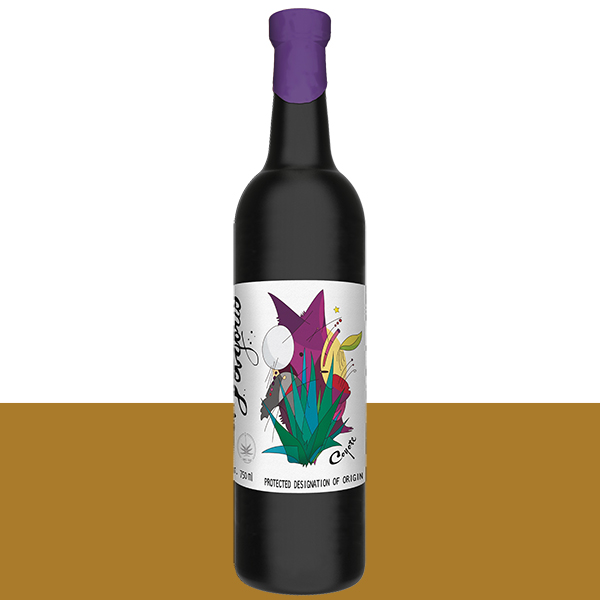
|
| Coyote Bottle Image |
|
|
El Jolgorio Coyote is made with silvestre agave Coyote that was harvested by Pedro Vasquez and his family. Agave Coyote is a sub-variety of agave Americana species (var. Oaxacensis) that can take 16 years to reach maturity. Thus, it shares the same Latin name as agave Arroqueño, yet they are quite different in both physical appearance and flavor profile. Like the 2017 edition, the 2018 entry is made by Pedro Vasquez in Lachigui. This elegant and vivacious mezcal was first released in 2017 and is the most limited of all the Special Release bottlings.
|
|
|
|